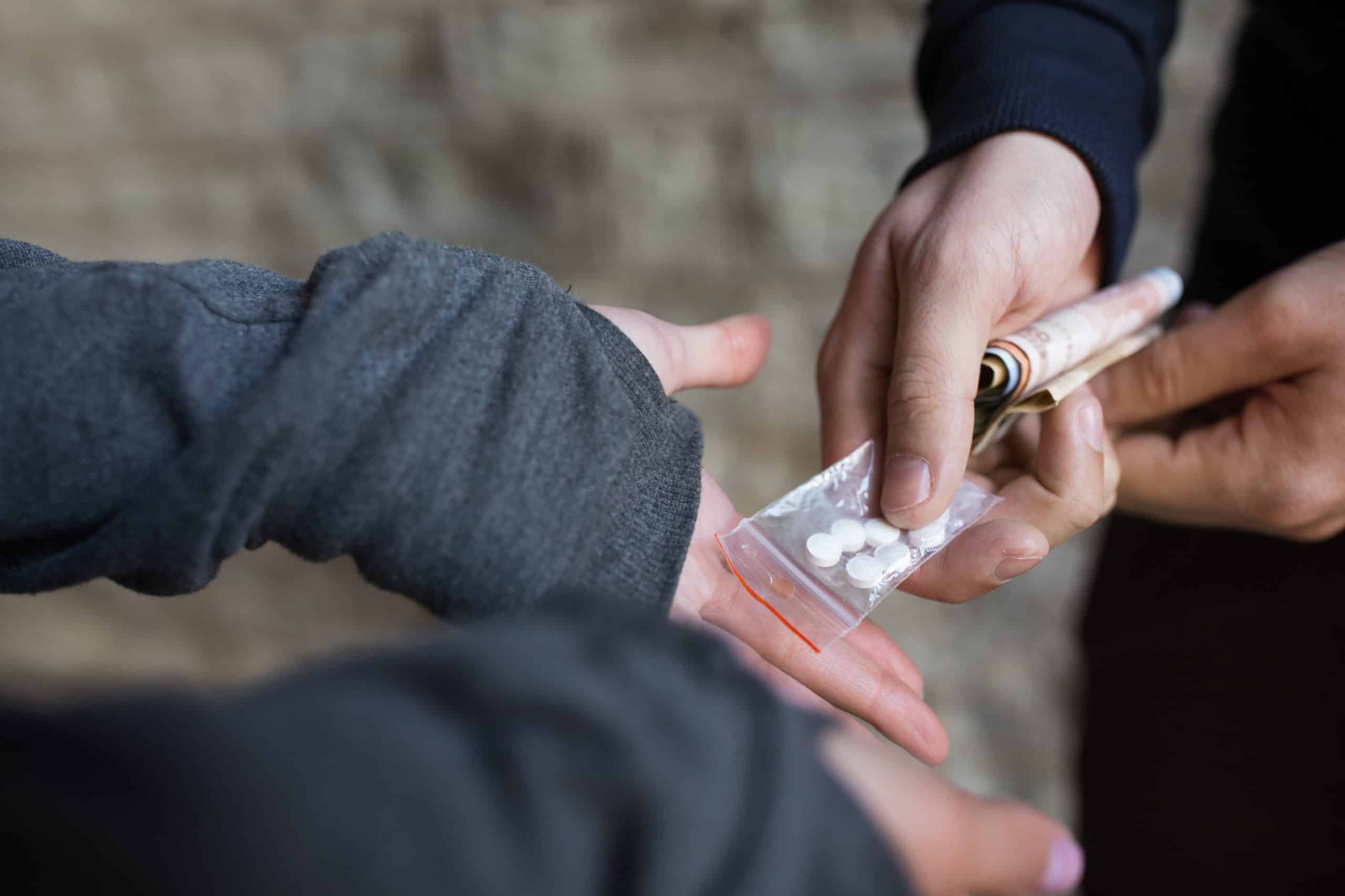
Upon conviction for a drug crime in Grand Prairie, you will pay a substantial fine and likely spend time behind bars — potentially an extended sentence, depending on the drug in question, any prior criminal history, and the circumstances of your arrest.
And, for even the smallest drug offense, you will have a permanent criminal record, which may potentially interfere with your ability to get a job or rent an apartment. It can also prevent you from holding professional licensure or getting into your college of choice.
Protect your future. Speak to a drug crime lawyer in Grand Prairie who understands the importance of a strong criminal defense. Call the Law Offices of Randall B. Isenberg today to schedule your free consultation: 214-696-9253.
What Are the Drug Crime Laws in Grand Prairie?
In Grand Prairie, the definitions and penalty structure for Texas drug crimes come from the Controlled Substances Act (CSA). Generally defined, the prosecutor can charge you with either drug possession, drug delivery, or drug manufacturing — or any combination of these offenses.
Drug Possession
Intentionally or knowingly possessing an illegal drug or controlled substance. Possession means having the substance on your body, in your backpack, or purse. Depending on the circumstances, the police can charge you with possession if you have the drugs in your vehicle, your house, or your locker.
Drug Delivery
Knowingly or intentionally transferring an illegal drug or controlled substance to someone else. This includes exchanging drugs for money or anything of value, but it also includes giving drugs or controlled substances to another person.
Drug Manufacturing
These charges apply to both growing marijuana and mixing or cooking a drug or controlled substance. The police can arrest you — and the prosecutor can charge you – for manufacturing even if you only have some ingredients used for mixing a drug (e.g., a large quantity of Sudafed and a scale).
The prosecutor can increase the severity of your charges if you had a weapon at the time you broke the law or if you committed a drug crime in a school zone or a drug-free zone.

Understanding Illegal Drug Penalty Groups
To make the complex drug statutes easier to understand and apply, the CSA groups different types of drugs into designated penalty groups.
| Penalty Group 1 | Penalty Group 1-A |
| Opiates and opium derivatives (heroin, codeine compounds), methamphetamine, cocaine, crack, hydrocodone, oxycodone, ketamine, fentanyl, GHB, and Rohypnol | Lysergic Acid Diethylamide (LSD or acid) |
| Penalty Group 2 | Penalty Group 2-A |
| Hallucinogenic drugs, including PCP, ecstasy, psilocybin, MDMA, mescaline, and “bath salts.”
Depressant/stimulant compounds, such as amphetamine, methamphetamine salts (Adderall) |
Synthetic marijuana (Spice, K2) |
| Penalty Group 3 | Penalty Group 4 |
| Stimulants, depressants, and narcotics, such as Xanax, Klonopin, Ritalin, clonazepam, valium, hydrocodone, barbiturates, human growth hormone (HGH), testosterone, and anabolic steroids | Narcotic compounds with nonnarcotic active ingredients, such as opium, codeine, morphine, buprenorphine, and pyrovalerone |

Will I Go to Jail for a Drug Crime in Grand Prairie?
Every type of drug charge in Grand Prairie comes with potential jail time, with the exception of paraphernalia possession. Possessing drug paraphernalia is a misdemeanor, which only comes with a fine.
Possessing any quantity of any illegal drug can put you behind bars.
In fact, if the police arrested you for possessing less than 2 ounces of marijuana, you could spend as much as 6 months in jail. Certain charges carry mandatory minimum jail sentences and fines up to $300,000.
These are the potential penalties for drug crimes in Grand Prairie.
| Charge | Example Offenses | Penalty |
| Class C Misdemeanor | Possession of Drug Paraphernalia | $500 fine |
| Class B Misdemeanor | Marijuana Possession (up to 2 ounces)
Group 4 Drug Possession (up to 28 grams) |
$2,000 fine, up to 6 months’ jail time |
| Class A Misdemeanor | Marijuana Possession (2 – 4 ounces)
Group 3 Drug Possession (up to 28 grams) |
$4,000 fine, up to 12 months’ jail time |
| State Jail Felony | Marijuana Possession (4 ounces – 5 pounds)
Group 1 Drug Possession (up to 1 gram) |
$10,000 fine, 6 months to 2 years’ jail or prison time |
| Third-Degree Felony | Marijuana Possession (5 – 50 pounds)
Group 1 Drug Possession (up to 4 grams) Group 2 Drug Possession (1 to 4 grams) |
$10,000 fine, 2 to 10 years’ prison time |
| Second-Degree Felony | Marijuana Possession (50 – 2,000 pounds)
Group 1 Drug Possession (4 – 200 grams) |
$10,000 fine, 2 to 20 years’ prison time |
| First-Degree Felony | Marijuana Possession (more than 2,000 pounds)
Drug Trafficking Drug Manufacturing |
$10,000 fine, 5 to 99 years (or life) prison time |
The statutes grant the courts the ability to assess fines that exceed the guidelines described above for some types of drug crimes. For example, possessing more than 8,000 units of LSD (Group 1-A) carries a fine of up to $250,000.
In addition to drug possession, the statutes also assign severe penalties for the offenses of drug delivery and manufacturing.
Anyone facing charges for drug delivery or manufacturing can expect the prosecutor to aim for the harshest possible sentence. Prosecutors typically pursue first-degree felony charges for drug delivery — the sale of drugs to others — as well as for drug manufacturing.
The court may also give you community service and probation, after you have done your time behind bars. Conviction for a drug crimes also requires you to pay court costs and attend a substance abuse course.
Finally, your conviction will become a part of your permanent record, visible to the public. So, anyone who runs a background check on you will see it. This includes potential employers, prospective landlords, and any colleges that you apply to. This will also prevent you from holding many types of professional licenses.
How Can a Drug Crimes Lawyer Help Me?
If you want to avoid going to jail, paying a fine, and enduring the other harsh consequences of a drug conviction, you will have to fight the charges against you. Having a knowledgeable drug crimes lawyer in Grand Prairie will allow you to make more informed decisions about your future.
After arresting you for a drug crime, the police will often try to convince you to enter a guilty plea. They may tell you that, by pleading guilty, you will not have to spend any more time in jail.
For someone facing serious drug charges, frightened about his future, and faced with going to jail, this can be tempting. But, rest assured, the police and prosecutors do not have your best interest in mind. They simply want a conviction, however they can get it.
Having a drug crimes lawyer ensures that you will hear the truth about how a conviction can affect your future. Your lawyer will protect your legal rights and explain your options.
The sooner you can get a drug crimes lawyer on your side, the sooner your lawyer can start looking into the evidence. Your lawyer will look for errors that the police may have made, as well as any potential violations of your legal rights. A drug crimes lawyer understands how to use any weakness in your case to negotiate with the prosecutor to get your charges reduced or dismissed.
If the police obtained evidence in your case illegally, your lawyer may even convince the court to throw out that evidence.
A drug crimes lawyer can also tell you if meet the requirements for any diversion programs that could help you avoid jail time and a criminal record.
Talk to a Drug Crime Lawyer in Grand Prairie Today for Free
Do not risk your future by trying to fight drug charges on your own.
In Grand Prairie, Attorney Randall Isenberg, of the Law Offices of Randall B. Isenberg, understands how to navigate the complex legal system. With more than three decades of experience as a criminal defense lawyer, judge, and prosecutor, he will put his knowledge to work for you, to protect your legal rights and your future.
Call today to schedule your free consultation: 214-696-9253










